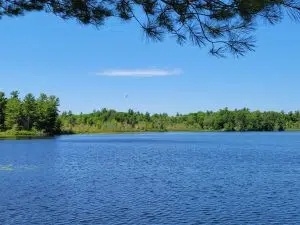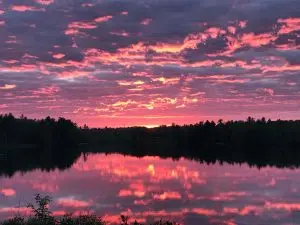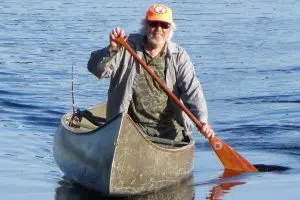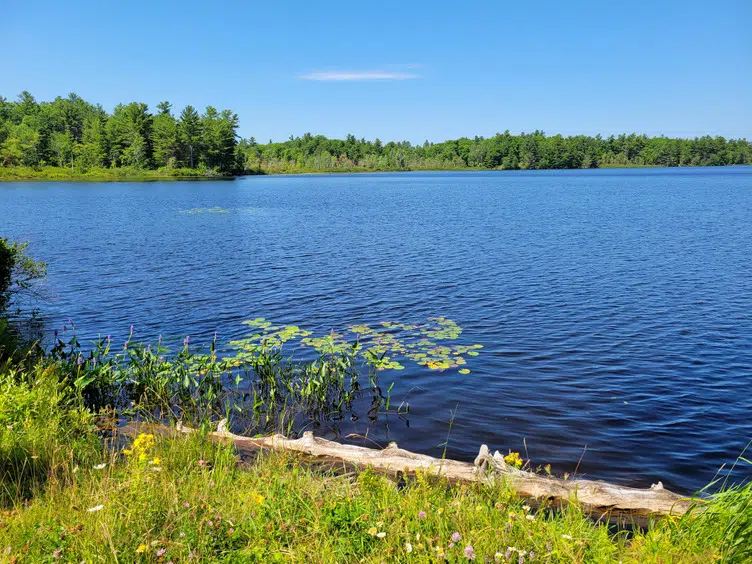An important wetland near Kingston is now protected.
The Nature Conservancy of Canada has announced the complete protection of ecologically sensitive lands surrounding Loon Lake, 40 kilometres northwest of Kingston after reaching an agreement with a private landowner.

Glen’s Cove, Loon Lake. (Photo: Rob McRae/NCC staff)
For more than 25 years, NCC has partnered with Monte Hummel to conserve much of Loon Lake through several conservation agreements.
The NCC’s Rob McRae says the latest parcel is a small but important 0.4 hectare parcel of land at the east end of the lake.
“And so the family has had a long history of ownership there. They really value the land. And of course they’ll continue to own the land but it’ll be subject to this agreement with the Nature Conservancy of Canada to limit development going forward and maintain it as wildlife habitat.”
“And so you might find lots of monarch butterflies there, lots of turtles there, a beautiful bird called the whip-poor-will and other species throughout the properties. So, it’s an important place for those species and for species that move broadly across the landscape, you know, bears and fishers and otters and migratory birds like the loon.”

Sunset on Loon Lake. (Photo: Courtesy Monte Hummel)
The land from the Hummel family remains private but it links to public lands, part of a larger conservation (Depot Lakes Conservation Area) network that spans over 2,000 hectares.
Hummel has named the area Glen’s Cove in memory of his good friend Glen Davis.
Davis, a Canadian conservation philanthropist lost his life in 2007.
Hummel says, “Protecting such a beautiful place on the Canadian Shield during my lifetime has been an honour. And I feel that extending that stewardship for another 999 years is the least I can do to thank Loon Lake for its generosity to my family in our modest off-grid cabin for over 60 years.”

Monte Hummel. (Photo courtesy of Monte Hummer)
The Loon Lake area, combined with adjacent undeveloped lands, extends eastward to the Frontenac Arch Biosphere Reserve, which is an area of global significance.
The Nature Conservancy of Canada works with people, communities, businesses and government to protect and care for the country’s most important natural areas.
Since 1962, NCC has helped conserve and restore more than 15 million hectares, including more than 196,000 hectares in Ontario.
To learn more, visit natureconservancy.ca.






